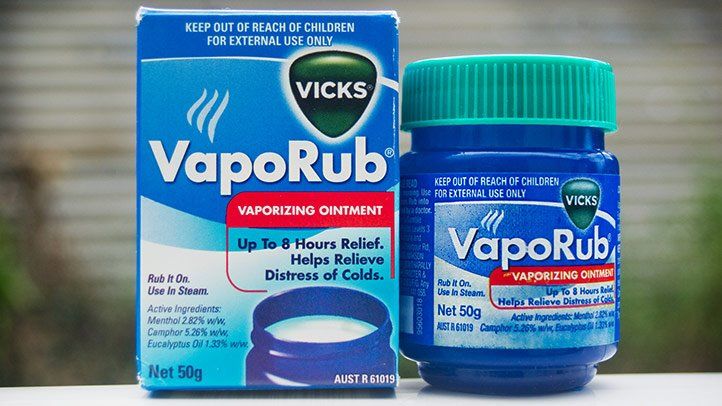What is an Upper Respiratory Infection?
An upper respiratory infection (URI) refers to a group of contagious illnesses caused by viruses and bacteria that infect the upper airways, including the nose, throat, sinuses, larynx, or trachea. Common upper respiratory infections include the common cold, influenza, sinus infections, laryngitis, tonsillitis, and pharyngitis.
The most prevalent symptom of an upper respiratory infection is nasal congestion. Other symptoms may include:
- Runny nose
- Sneezing
- Sore throat
- Cough
- Headache
- Post-nasal drip
- Low grade fever
- General malaise
Though some URIs may last for weeks, the majority follow a 3-14 day course. Most are viral and must simply run their course, but some bacterial infections may require antibiotics.
Are Upper Respiratory Infections Contagious?
Yes, upper respiratory infections are very contagious. They spread quickly and easily through contact and airborne droplets. Coughing, sneezing, or touching contaminated surfaces can transmit viruses and bacteria from person to person.
How Long is a URI Contagious?
The contagious period depends on the specific virus or bacteria causing the infection. Here are the contagious periods for some common URIs:
- Common Cold Contagious 1-2 days before symptoms start and for up to 7 days after becoming sick.
- Influenza Contagious 1 day before symptoms start and up to 5-7 days after.
- Strep Throat - Highly contagious until treated with antibiotics for 24 hours.
- Sinus Infection Potentially contagious for duration of illness.
- Tonsillitis Contagious for 7-10 days without treatment.
How are Upper Respiratory Infections Spread?
The viruses and bacteria that cause URIs spread through direct contact and airborne transmission:
- Droplet Transmission - Coughing, sneezing, or talking propels tiny infectious droplets into the air which can land on surfaces or be inhaled.
- Contact Transmission Touching contaminated surfaces or objects then touching eyes, nose, or mouth spreads infection.
- Fecal-Oral Transmission Some viruses can spread through stool particles contacting surfaces.
Precautions to Avoid Spreading Infection
If you have an upper respiratory infection, here are some precautions you can take to avoid passing it on to others:
Stay Home When Sick
Remain at home while symptomatic, especially if you have a fever. Only resume normal activities once your symptoms have resolved.
Cover Your Coughs
Always cough or sneeze into a tissue and discard it promptly in a closed bin. Cough into your sleeve if necessary.
Wash Your Hands Frequently
Make hand hygiene a priority. Always wash with soap and water after coughing, sneezing, or blowing your nose.
Avoid Touching Your Face
Viruses can enter through the eyes, nose, and mouth. Avoid touching your face and spreading germs.
Clean Surfaces
Disinfect doorknobs, counters, keyboards, and other commonly touched areas to kill lingering microbes.
Avoid Sharing Items
Dont share cups, utensils, towels etc. Use disposable tissues and dispose promptly in a closed bin.
Treating Upper Respiratory Infections
Most upper respiratory infections are caused by viruses, so antibiotics are ineffective. Treatment focuses on managing symptoms for comfort. Options include:
Over-the-Counter Medications
OTC drugs like acetaminophen, ibuprofen, decongestants, expectorants, and antihistamines can relieve congestion, pain, cough, and other symptoms.
Rest and Hydration
Get extra sleep and drink plenty of water and warm fluids to soothe an irritated throat and loosen secretions.
Saltwater Rinses
Gargling with warm salt water helps ease a sore throat and break up mucus.
Humidifier
Using a cool mist humidifier can moisten and soothe dry nasal passages and reduce congestion.
Nasal Saline Rinse
Irrigating nasal passages with a saline rinse removes mucus and hydrates membranes.
How Medications Affect Contagious Period
Antibiotics have no effect on the contagious period of viral URIs. However, certain antiviral medications may shorten the duration for some illnesses like the flu. Precautions should still be taken for the standard contagious timeframe when sick.
Antibiotics and Strep Throat
Taking antibiotics for strep throat renders the infection non-contagious after 24 hours of consistent treatment. So a 10-day course would no longer spread infection after day 2.
Tamiflu and The Flu
The antiviral Tamiflu shortens flu contagiousness by 1-2 days. Flu precautions should continue for 5 days minimum, rather than the standard 7.
Steroids and Colds
Oral steroids like prednisone do not reduce cold infectiousness. They may temporarily suppress symptoms but the virus remains active.
Preventing Upper Respiratory Infections
While URIs will always circulate, especially during cold winter months, you can take certain precautions to avoid infection:
Wash Your Hands Frequently
Make hand hygiene a habit. Always wash after touching public surfaces or blowing your nose.
Avoid Touching Your Face
Viruses enter through the eyes, mouth, and nose. Avoid touching your face to prevent transfer.
Cover Your Coughs and Sneezes
Always cough into your sleeve or a tissue to prevent airborne droplet spread. Promptly discard used tissues.
Clean and Disinfect Surfaces
Regularly sanitize commonly touched surfaces like phones, doorknobs, and keyboards to kill lingering germs.
Avoid Contact with Sick People
Keep your distance from those exhibiting URI symptoms to avoid exposure to airborne viruses.
Get Vaccinated
Annual flu shots and up-to-date COVID-19 vaccines significantly lower your chances of viral infection.
How Vaccines Impact Transmission
Vaccines prime your immune system to quickly recognize and respond to specific viruses to prevent infection or reduce severity. They also lower contagiousness.
Flu Shot
The flu vaccine lowers the chances of catching and spreading the influenza virus. It reduces infectious period by about 1-2 days if infected.
COVID-19 Vaccine
COVID vaccines significantly decrease the likelihood of getting COVID-19. If infected after vaccination, the contagious period is shorter than unvaccinated.
Pneumococcal Vaccine
The pneumonia vaccine protects against Streptococcus pneumoniae, lowering risk for contagious illnesses like bronchitis, sinusitis, and pneumonia.
Getting vaccinated not only reduces personal infection risk, but limits potential transmission to protect public health.
FAQs
How long am I contagious with a cold?
You can spread a cold up to 3 days before symptoms start and for 7 days after becoming sick. Total contagious period is about 10 days.
Can I spread a sinus infection?
Yes, sinus infections are potentially contagious for the duration of illness if caused by a virus or bacteria that can be transmitted to others.
Is strep throat contagious after antibiotics?
After 24 hours of appropriate antibiotic treatment, strep throat is no longer contagious. But a full 10 day course is needed to completely eliminate infection.
How can I avoid spreading a URI?
Follow precautions like staying home when sick, hand washing, surface disinfecting, and covering coughs. Avoid contact with symptomatic people.
Do flu shots impact contagious period?
Yes, the flu vaccine can reduce the contagious window by about 1-2 days if you get infected after your shot. It provides some protection against transmission.
Disclaimer: This article is for informational purposes only and does not constitute medical advice. Always consult with a healthcare professional before starting any new treatment regimen.
Related Coverage
Discover the surprising power of an onion on your bedside table, a natural remedy that harnesses the anti-inflammatory and decongestant properties of onions to provide soothing relief from persistent coughs and respiratory ailments....
Ear infections can lead to sore throats since the ears and throat are connected. Learn why it happens, when to see a doctor, and how to find relief....
Putting Vicks VapoRub in your nose seems like a fast sinus relief hack. But this risky use can cause painful irritation, breathing issues, and toxicity....
Learn about the ongoing debate over just how effective Vicks VapoRub really is at treating coughs and colds. Get the facts on ingredient safety concerns and tips for proper usage....
Can you safely take ibuprofen and DayQuil together? Experts warn combining them poses avoidable risks like liver toxicity, bleeding issues, and intensified side effects....
Answers to common questions about managing migraine headaches naturally with herbs, vitamins, supplements and lifestyle adjustments for prevention....
Feeling awful but unsure if you're too sick for work? Take this quiz to decide if you should stay home and recover. Look for symptoms like fever, fatigue, infection, nausea....
Onions and honey each offer unique healing and nutritional benefits from colds to wounds and heart health. Learn how this powerful pair can boost your overall wellbeing....
Learn about Coricidin HBP, its ingredients, and how it can cause drowsiness. Discover user experiences and important safety considerations to make informed decisions about this medication....
Chigger season in Texas typically starts in spring and lasts through late summer, with peak activity in May, June and July. Learn how to identify bites and prevent misery....









